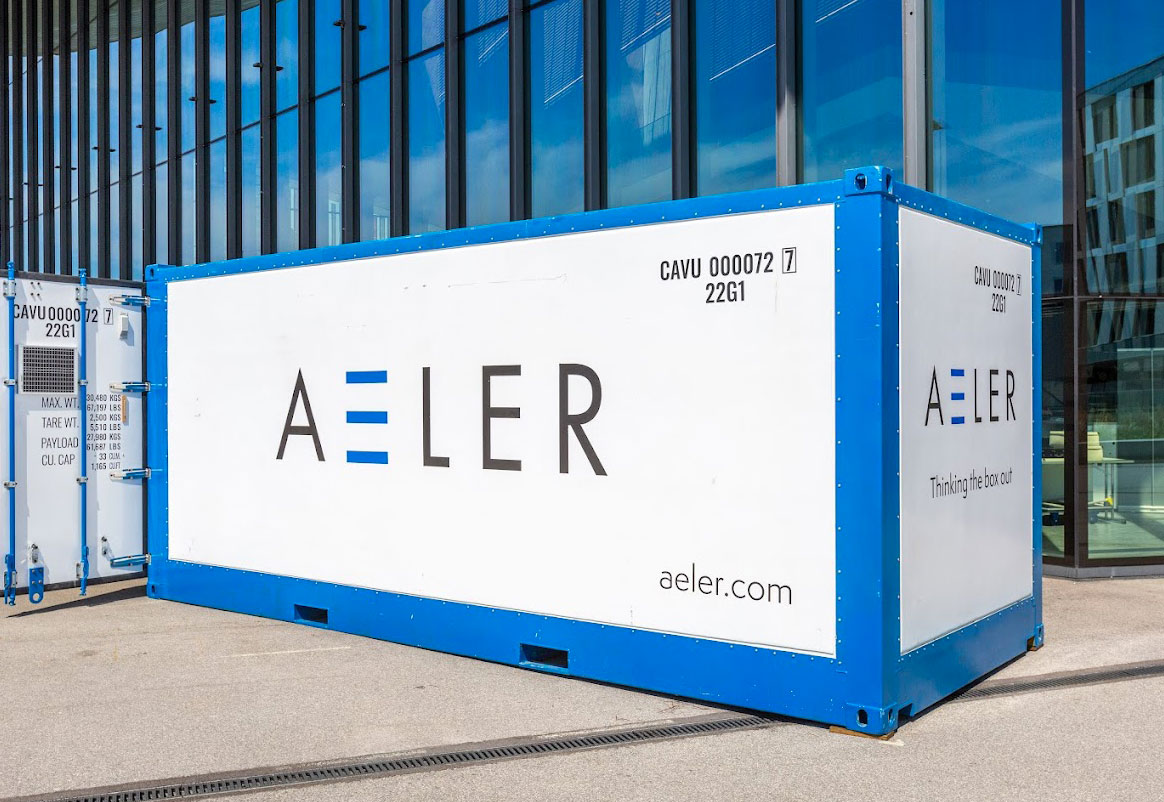Naik Londono and David Baur, co-CEO AELER
The arrival of containers disrupted the shipping business in the 1960s, forcing everyone to rethink the way transporting goods was done. But since Malcolm McLean’s invention in 1956, the venerable box has barely changed. A paradox, given that 80% of the world’s goods transit through containers – the building blocks of our global economy.
But today with business and ESG requirements, the hot, often rusty and largely unconnected metal container is becoming less efficient. Taking this challenge head-on, AELER – a Swiss-based scale-up – has launched a new generation container that’s reversing the paradigm: it’s time for the container to fit cargo owners’ needs and not the reverse.
The new container provides greater strength to store more goods and in better conditions with insulated walls and state-of-the-art electronics that allow shippers to track goods in transit. This drastically reduces both operational costs and CO2 emissions, tackling some of the key challenges of the classic container: security, payload, temperature stability and sustainability.
The trading of perishable commodities, such as coffee, cocoa, and cereals, faces many challenges, including container heat, humidity, temperature variation, and traceability of goods. The new container can meet many of the challenges that merchants face in transporting their goods.
How is this possible? On the structural side, owing to the use of composite materials which all the side panels, doors and floors are made of. For the IOT, it’s not a simple add-on box with a single use battery but a high-tech device using proprietary technology that’s embedded directly inside the container and is constantly recharged via solar panels.
This new technology allows the commodity trading company to know exactly where the container and its cargo are at all times. In addition, a special emphasis has been put on security for all stakeholders, with door openings and shocks being detected thanks to the new technology.
Stronger, insulated, connected and smart, this new container has specific benefits for:
- Bulk liquids: Thanks to the container’s increased strength, it can safely accommodate flexitanks of up to 28 tonnes instead of 24. That’s a 17% higher payload which means that only 6 containers are now needed instead of 7, cutting CO2 emissions by 20%.
- Sensitive goods: Drastic reduction in temperature variations with the container’s structural insulation. This significantly reduces fitting time and costs and offers a viable alternative to reefers for specific use cases.
- High-value goods: This container creates visibility with a special emphasis on security for all key stakeholders. It tells them where and ‘how’ the container and its cargo are at all times with door openings and shocks now all detected.
In this period of high change, the common link between all stakeholders in a logistic chain is the container. It’s the one thing that connects all commodity stakeholders and many can benefit from AELER’s innovations.
